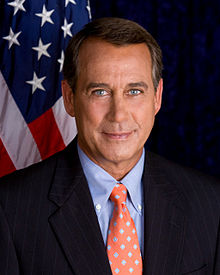
(Photo credit: Flickr user Steve Rhodes)
In a radio interview with MSNBC’s Ed Schultz, Progressive Change Campaign Committee co-founder Adam Green argued that Democrats should go on offense and use smart leverage in fiscal talks. Schultz agreed, and then proposed that Democrats ask for higher than Clinton tax rates on the rich. He then tweeted out the idea:
On Schultz’s radio show, Green elaborated — saying such a plan to raise taxes on the super-wealthy exists in the House, and should be talked about more more in fiscal talks.Ai??Progressive Rep. Jan Schakowksy (D-IL) has proposed a “millionaire’s tax” that creates special tax brackets for millionaires and billionaires that range between 45 and 49 percent. According to economist Dean Baker, using numbers from Citizens for Tax Justice, this tax plan would raise as much as $1 trillion over a decade. Here’s a how much the plan would raise in billions of dollars each year (the presumed starting year when this study was performed was 2011):
The public supports a higher tax rate on the rich. We polled voters in Virginia, Illinois, Ohio, Missouri, Montana, and Minnesota on the question of whether they would support Schakowsky’s millionaire tax idea. Here are the results, which show that voters are overwhelmingly supportive of this idea:
QUESTION: Would you support or oppose a proposal that said personal income above $1,000,000 would be taxed at 45%, income above $20,000,000 dollars would be taxed at 47%, and income above $1,000,000,000 would be taxed at 49%?
Ohio
62% support
29% oppose
Missouri
56% support
30% oppose
Montana
56% support
33% oppose
Minnesota
61% support
29% oppose
Virginia
60% support
27% oppose
Illinois
67% support
23% oppose
As Schultz pointed out, yesterday the president said, “[We’ve got to] …







